Why I've Chosen to Be My Own Boss
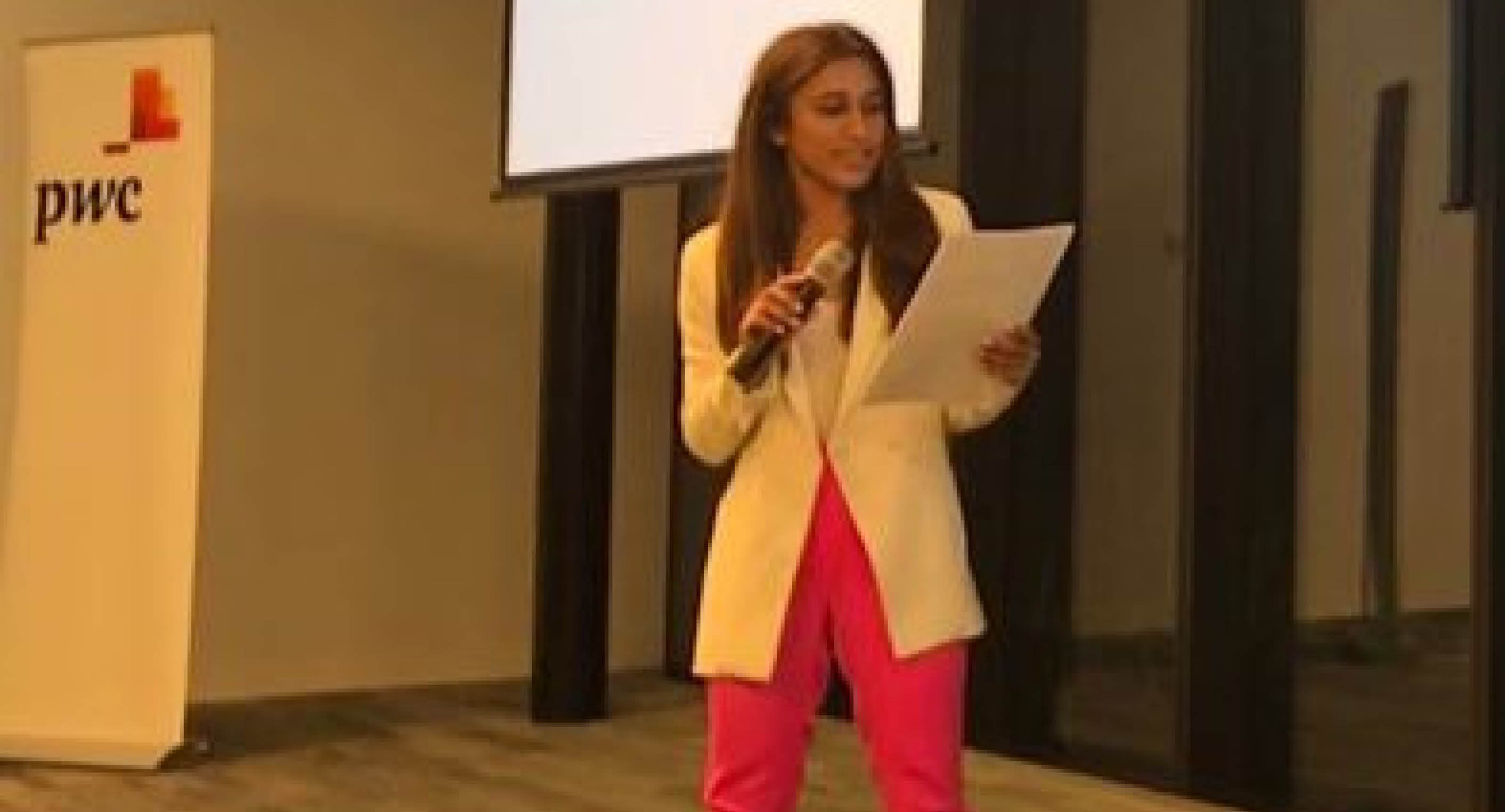
What is a typical day like for you?
My alarm goes off between 6:15-6:30am, I prefer to have 30-40 minutes by myself in the morning to collect my thoughts not rush around before work otherwise it sets the tone not only for the day but possibly the week. I don’t like the term “work-life” balance as its never resonated with me and I prefer to focus on improving work-life integration. That said, I plan my weeks meticulously on a Sunday evening, and also at the end of each day (which includes meetings, work and self-care).
Name a few of your daily habits?
I always start the day with hot water mixed with Lemon, Apple Cider Vinegar and Cayenne pepper. I’ll get ready for work and then eat breakfast. I usually try to eat by 7pm and wake up hungry so skipping breakfast for me is always a no-go. I don’t drive so I always try to walk at least 15,000 steps or more on a weekday.
What would be your biggest piece of advice to your 20-year-old self?
If you don’t belong, don’t be long. I think too often people think there is an expectation to get 2-5 years’ experience with a company at the expense of their happiness, limited career growth or a pay less than they deserve. When I first started my career people would always say “how bad it looks to keep moving from company to company”. We spend more time at work than anywhere, and if your company isn’t helping you to grow professionally whilst looking after your own happiness, why would you help grow their business?
Talk to me about your employment history?
For the short length of my career, my employment history is long. I’ve worked with some amazing companies. My experience spans across Marketing, Education, Health, Recruitment and HR, Change management, Consulting and most recently HR Technology.
My dream job would be any job that allows me to combine my skills, experience and interest in Employee Experience, the Future of Work, Tech, and traveling.
In addition to being paid, how does your career bring value to your life?
Knowing that my work is impacting a whole employee workforce, improving the way a business operates and their customer experience, brings me a lot of satisfaction at the end of each day
Do you have any other skills or talents others don’t really know about?
In the last couple of years, I developed an interest in Digital Marketing and wanted to better understand the process that Marketing and Research companies go through to assess online behaviours, from search terms to products, devices and demographics. So, I taught myself how to use Adwords, Google Analytics and MOZ, completing three freelance Digital Marketing landscape projects for Health and Wellness companies. I had to put my head down and lock myself away for them, but it has really helped me up-skill and I’m glad I took that time.
With a background in STEM related roles, was there ever a time you can recall where you became aware that your gender, religion, or the way you look has influenced an outcome (positively or negatively)
Even though I was always tinkering with tech and computers from an early age I never really thought about it as a career. Now when I look back, I think it’s because people rarely spoke about tech-related career paths and I just wasn’t exposed to that industry growing up. Without any STEM background, I felt I had to battle a bit to convince people to give me a shot. I think if you have a strong interest in something (as I did with HR Tech) companies need to be more trusting that a candidate is willing to pick up the necessary skills and learn. If you look at the statistics - Australia has a major Technology and IT skills shortage and low female representation. Moving into jobs of the future, I now see this as such an advantage for me.
What publications do you regularly read?
Tough one! I’m a big reader and love anything on Tech, Customer/Employee Experience, Health and Wellness and what these landscapes will look like in the future. I really enjoy Chatbots Magazine, Monocle and anything by Sir Richard Hames, the CEO of Zappos, The Future Laboratory, Dr Mona Vand, Blake Morgan and Ashley Goldsmith CPO at Workday.
You’ve worked as a business analyst within some of Australia’s largest companies, what made you decide to branch out and start something on your own and how are you finding the difference?
I’ve been doing my own thing since early 2012, and my website Her Economy has been in a constant process of iteration and refinement since then. I decided to start it just after graduating and realised there was no single resource for me to access information relative to where I was in my career. My friends and peers were discussing the same problems I was trying to solve so it made sense.
You mentioned you are a fan of project-based working/gig work. What is it about this style of working that benefits you?
For me it’s about the impact you can have on a business, the incredibly talented people you work with, the pace and skills and experience you learn. All of the projects I have worked on have been multi-million-dollar large scale digital or HR Tech transformation projects, and I know if I wasn’t working in a project environment, I could never gain the experience I have to date.
Can you tell me a little bit about any challenges you’ve faced in recruitment or employment?
The biggest challenges I’ve found is external recruitment companies not understanding the roles they are recruiting for, or individual skills required - particularly in the tech products space. Often, I’ve found traditional recruiters can’t always fully articulate the job requirements and either over or undersell a job. I can’t imagine the negative impacts this has on both companies and candidates. For me personally, having developed a diverse resume spanning Tech, HR and Change Management, it can be challenging finding a role that combine all three areas and not just one.
Ashlee is the Founder, Chief Editor & Content Director of Her Economy. She started Her Economy when she realised that there was no single business-lifestyle publication covering finance, tech, wellness, style and beauty news for the career woman who’s always on the go like her. Her Economy is her way of sharing all the thoughts, ideas, collaborations and design concepts she’s had along the way while connecting with other career-minded women. Ashlee has worked with some of Australia’s Leading enterprises across Media, Communications, Technology, Finance, Health, Marketing and Management.
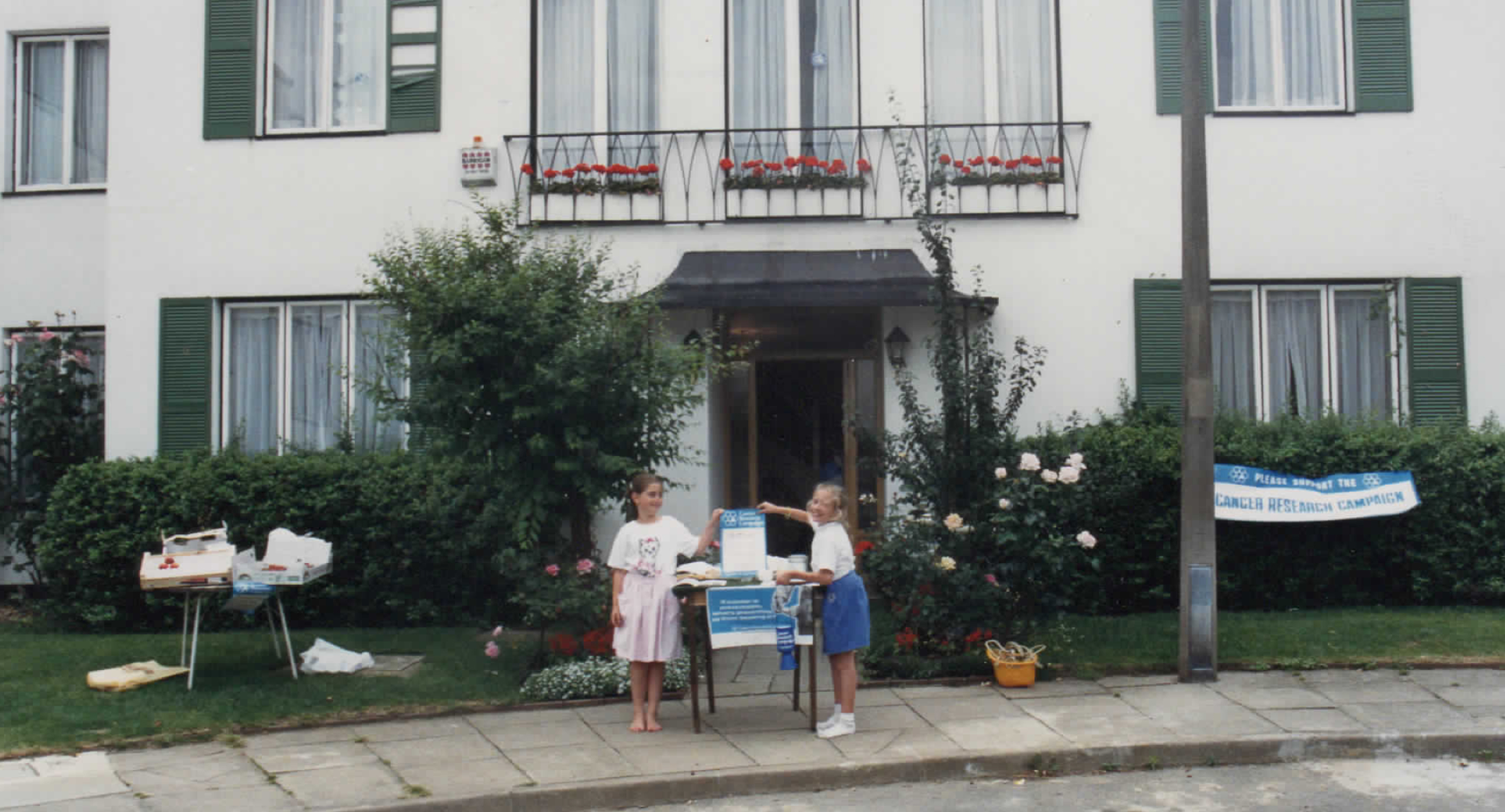
We were the proud partners of World Forum Disrupt’s Women of the Web event last week which saw over 250 smart and engaged female leaders from the front lines of Sydney’s most influential digital organisations, come together to learn, share knowledge, connect and eat banana bread together. The irony of the event being hosted above an old-fashioned Gentleman's Club was not lost on us, but the energy and empowerment from that room was strong enough to drown out any whiffs of cigar smoke, single malt whisky, or patriarchal leanings that may have been lingering in the air.
The keynote presentations acknowledged thought-provoking and topical issues for everyone, by an incredible panel of guest speakers from the upper ranks of the world’s most innovative and successful organisations. These included but were not limited to:
- The rise of women in digital
- Equal Pay
- Building inclusive and equal company culture
- Breaking into C-Level leadership
- Maternity leave and legal loopholes
- Corporate social responsibility
- Embracing obstacles and redefining 'failures'
Needless to say, we came away inspired and equipped to make a change too. As part of this we wanted to share some of the highlights of the talks we encountered, beginning with Susie Bayes, Head of Partnerships & Philanthropy at The Guardian.
Purpose to Profit: The New Business Paradigm
The argument for companies to elevate social purpose within their business priorities rather than hide them away within “Corporate Social Responsibility” initiatives is becoming impossible to ignore.
J.Walter Thompson research adds to global evidence, revealing that:
- 89% of respondents “care personally” about protecting the planet
- 83% would always pick the brand that has a better record of sustainability
- 90% agree that companies/brands have a responsibility to take care of the planet and its people.
From Unilever’s success through sustainability to Adidas’s selling over a million shoes made from ocean plastic, the uplift to these businesses’ bottom line is proof that doing good is good for business. Susie shared her own purpose journey and that of Guardian Australia, demonstrating that everyone can make a change through their work.
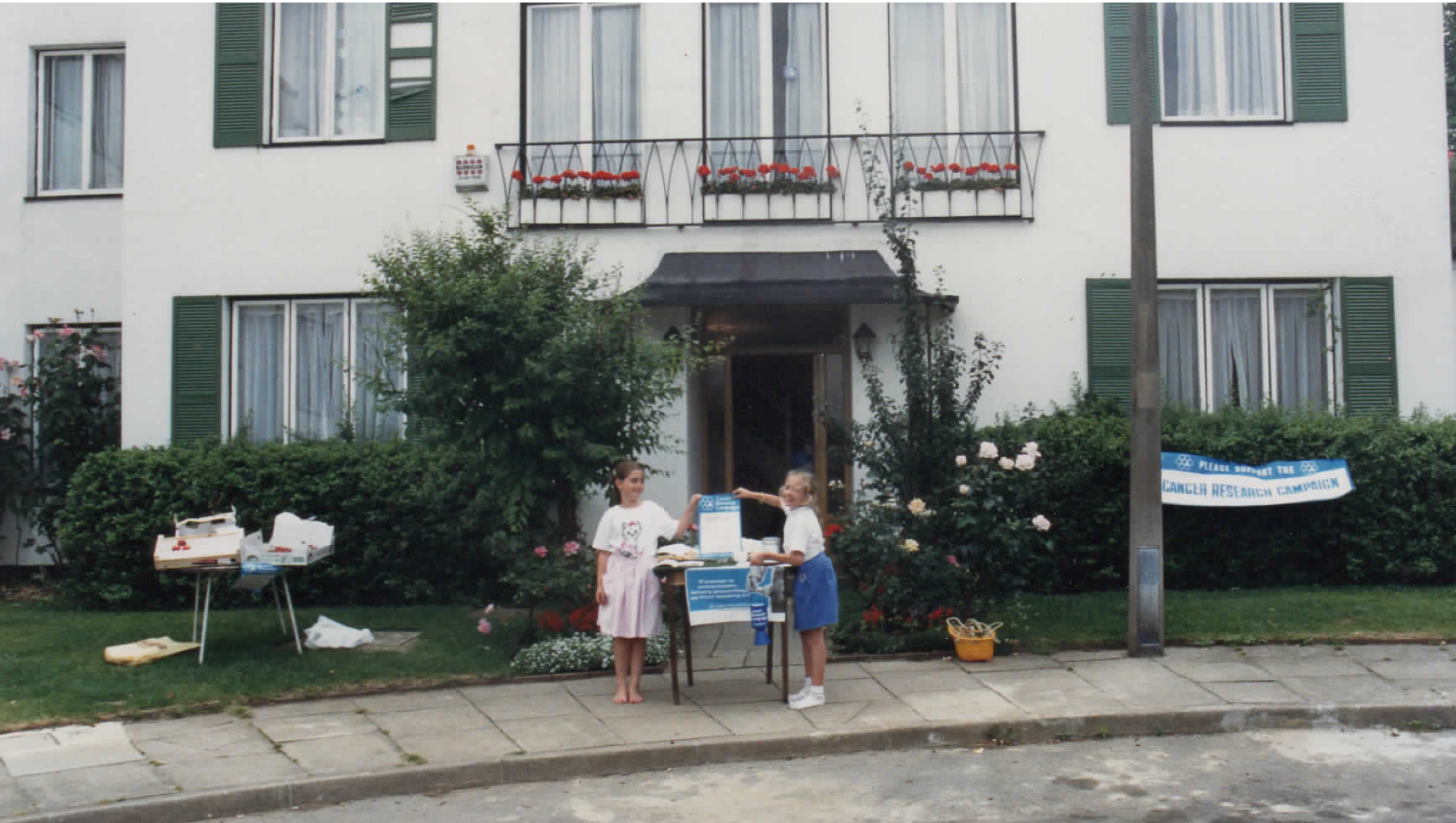
“My Purpose journey started at the age of seven, making my best friend help me run a sale for the Cancer Research Campaign in her garden! I was obsessed with reading about inequality all over the world and through history and really wanted to make a difference in the world. Before university, I taught English for 6 months at a Tanzanian high school, climbing Mount Kilmanjaro with the students. Then, with a deep interest in understanding people and their motivations, I studied Social Psychology. But after I graduated, I got distracted by having fun marketing Paramount, Universal and 20th Century Fox films.”
A New Chapter
Susie came to Australia looking for change, and unfulfilled by her first role at a publisher, was delighted when she was contacted about a role at The Guardian. The news publisher’s unique ownership by The Scott Trust ensured editorial independence and Susie loved their in-depth reporting on areas that weren’t getting the media attention they deserved, including immigration, indigenous issues and the environment.
Joining “Guardian Labs”, the content team, as a Group Account Director, she was responsible for creating ideas and innovative solutions that would help brands connect with readers to achieve their commercial goals. 6 years since its launch in Australia, The Guardian was rapidly increasing audience numbers (now over 5 million Australians) but reach no longer equated to revenue. All publishers faced a challenge: with Google and Facebook taking almost all new digital advertising dollars, how could news pay its way?
Other publishers assumed people wouldn’t pay for content and resorted to clickbait to maximise advertising impressions or thought the only way to get reader support was to gate content behind a paywall. The Guardian chose a different, unique path, predicated on their unique ownership structure and inspired by their mission
“Through clarity and imagination, we will make space for hope”.
They supplemented advertising and brand content by asking those who valued them for voluntary support -through reader contributions and philanthropy. With this mixed revenue model, The Guardian broke even and their unique purpose now makes their civic journalism sustainable.
Finding “Ikigai”
At 2015’s Purpose conference, Susie came across the Japanese concept of “Ikigai”. She realised this captured the pivot she wanted to undertake and looked at how her work could drive positive change which also achieved client objectives. She started to show clients and The Guardian alike the value of creating content that connected to the audience through their values and purpose.
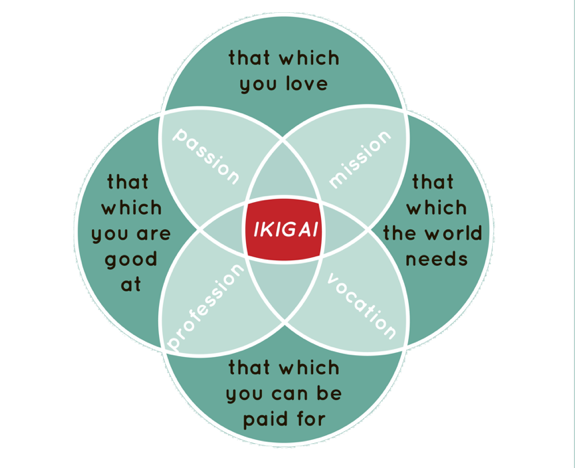 It’s 4 years since she started this journey, demonstrating a totally new way of working and it hasn’t always been easy. The hard work has now paid off and her new role allows her to create purpose-led brand partnerships with influential partners from Bank Australia to Powershop. She’s even partnered with Coca Cola, highlighting that 70% of their bottles are now made from recycled plastic, providing a pathway to a circular economy.
It’s 4 years since she started this journey, demonstrating a totally new way of working and it hasn’t always been easy. The hard work has now paid off and her new role allows her to create purpose-led brand partnerships with influential partners from Bank Australia to Powershop. She’s even partnered with Coca Cola, highlighting that 70% of their bottles are now made from recycled plastic, providing a pathway to a circular economy.
This work fulfils The Guardian’s mission statement “using clarity and imagination to inspire hope.”. It provides organisations with an authentically relevant way to scale their positive impact by investing in storytelling from The Guardian’s trusted voice.
What’s your Purpose?
Susie is adamant that, whilst it can be hard, everyone can make change through their work. “If you feel like you want more purpose, think about what you care about and what the world needs - finding out more from initiatives like The UN’s Sustainable Development Goals.
You don’t have to leave big business to bring purpose to your work. Once you know what impact you want to create, mastering intrapreneurship can help you achieve it:
- Make a compelling business case (Providing data to back up your hunches)
- Negotiate your internal political system (Identify the decision makers)
- Build communities of purpose (advocates within your business)
- Learn from existing stories and models (do more with less) and
- Foster personal resilience (be obsessed with your mission and spend time with your supporters)
Connect with the League of Intrapreneurs for more
Susie believes that together, we can be a force for change. Purposeful business makes sense for all business and is proven to help companies better innovate, invest, serve customers and engage employees. She recommends communicating purposeful initiatives effectively to see maximum return on investment, ideally with a trusted third party voice such as Guardian Labs.
She concluded with Brené Brown’s quotation, encouraging us to choose the former. Read more content from the Women of the Web event below.
“You can choose courage. Or you can choose comfort. You can’t choose both.”
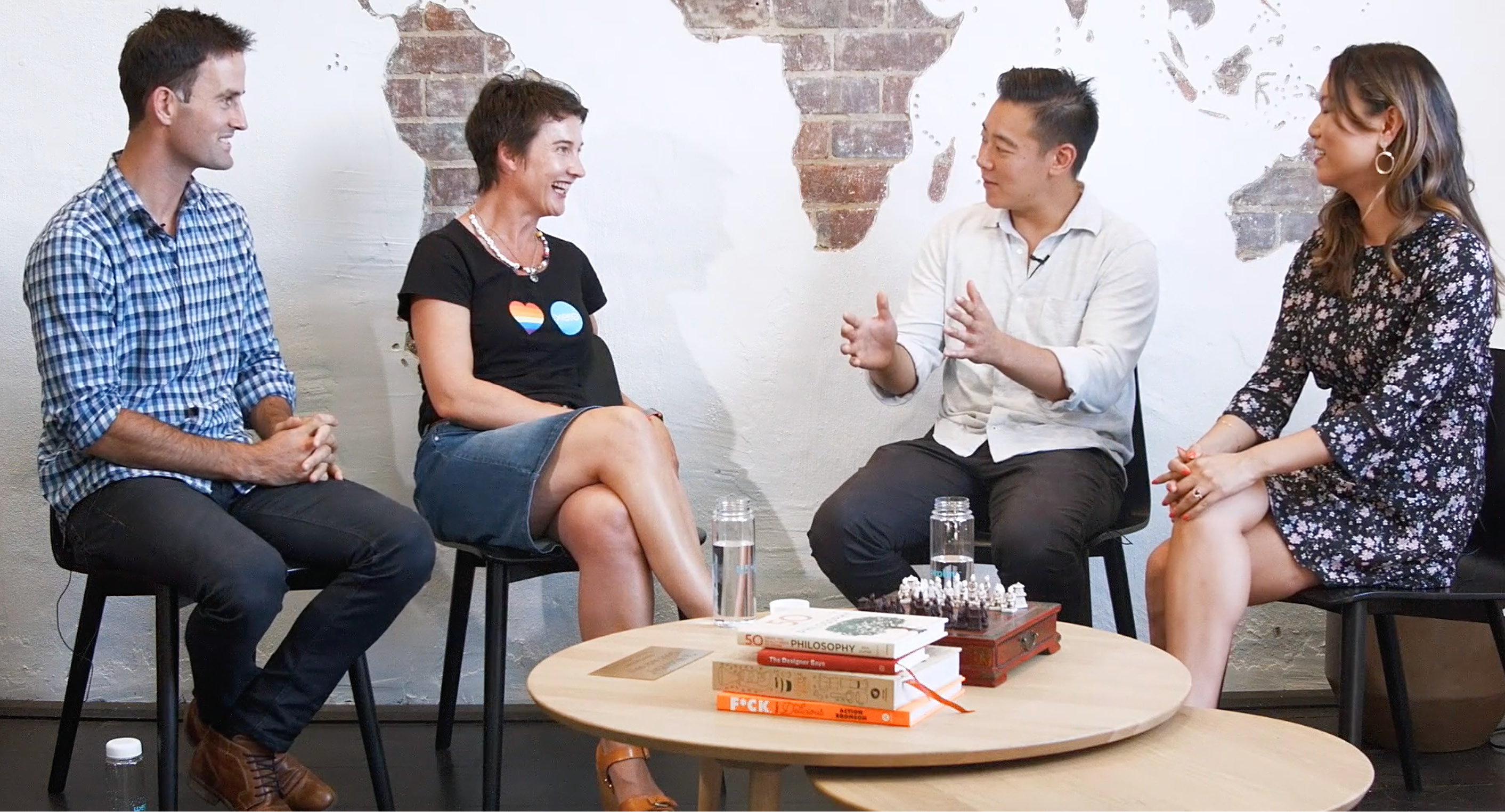
What challenges is Xero facing in talent acquisition?
The Team Xero value proposition to the candidate market is a strong one: we believe that you can come and do the best work of your life at Xero. And you can do so at a business that:
- Is one of the fastest growing SaaS companies in the world
- Is purpose-driven and committed to having an impact on the lives of our customers
- Has a set of meaningful values that underpin everything we do
- Is always looking to the future, questioning how we can continue to innovate to best serve our customers and stay ahead of the curve.
One of the hurdles we face, which is actually more of an opportunity, is making sure we are truly capitalising on the above messaging and amplifying it to our target candidate markets.
Whilst we have a strong value proposition – very helpful for any inhouse talent team – we also have our challenges too, primarily around scale. In a relatively short period of time, we’ve evolved from a beautiful accounting software start-up to a global small business platform. In the process, we’ve acquired a rapidly expanding customer base and built a geographically dispersed workforce of 2,500 employees. There will always be competing interests in a hyper-growth environment, so one of the main challenges for our our Talent Experience team relates to prioritisation of our hiring. Have we nailed that yet? No, but it’s something we’re continuing to work on in conjunction with Xero’s leaders.
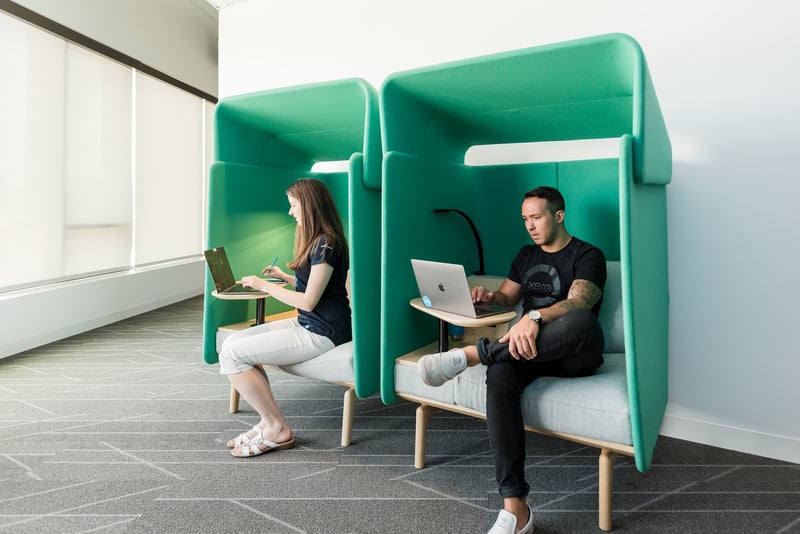
How does tech support the recruitment process for you at Xero?
We use a range of tools and technologies to aid our recruitment process here at Xero (there are some variances by region). As we continue to evolve our TX function, we’ll keep reviewing both existing and new tech to best support our efforts across employer branding and attraction, assessment, background checking, on-boarding and talent pooling. We also consider how tech can help us work best with candidates, hiring managers and each other.
While tech is the ultimate enabler, we believe it will always remain human interactions that drive the best outcomes.
What are you doing to promote diversity within what is stereotypically a male dominated industry?
From a gender diversity perspective, we work with some amazing partners like Work 180, Code Like a Girl, Tech Girls Movement, Girl Geek Dinners and Ladies that UX to showcase working life at Xero and highlight the opportunities for women in technology. In addition to our internal programs (part-time developer programs, career change programs etc.), these partnerships have achieved some fantastic results for our workforce composition and the communities that we support.
We also recognise that gender is only one element of diversity. Indeed, our hiring practices, ways of working, internal education and workshops and external partnership development need to reflect the diversity of our 1.8 million subscribers. We will continue to value and embrace diverse experience, skills and perspectives so that we can work better together and continue to innovate for our customers, partners, and the communities we interact with every day.
How does Xero's Talent team work with hiring managers when hiring?
We view hiring as a partnership between hiring managers and the TX team. In our opinion, the key to a good hiring outcome is complete clarity on the position, the candidate requirements and the hiring process itself. We also encourage hiring managers to constantly be out there meeting good candidates in-market and thinking about succession planning for their teams (whether they’re hiring for a vacancy or not).
What aspects of working at Xero do you highlight to a candidate during the recruitment process?
We make a conscious effort to lay all of our cards on the table. Nobody likes finding skeletons in the closet when joining a new business, so we go out of our way to be really transparent about both the benefits and the challenges of working at Xero. Naturally, some of the challenges don’t align well with everyone: Working at Xero is fast paced, constantly changing and requires working with ambiguity, and we call that out throughout the recruitment process. But for those who are up for the challenge and bring a growth mindset and bias for results, the opportunities are second to none when it comes to working with amazing people, evolving team Xero capabilities, and solving problems that have a positive impact on the lives of our customers across the globe.
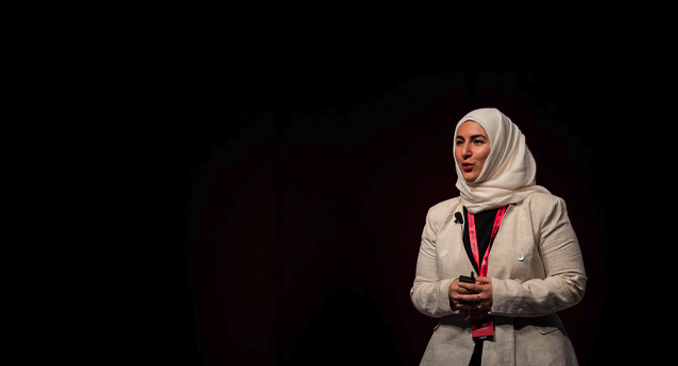
Born in a middle class environment in the Middle East, Nadine Saadi was taught that education for girls like her was everything: qualifications were the only thing that would enable the rest of the world to understand her value. When she brought up the idea of moving to Australia to study IT at Flinders University in Adelaide therefore, her parents were in full support despite being reluctant to see her move so far away from home.
Streamline your hiring
Business support staff with no hidden fees. Start hiring anytime.
